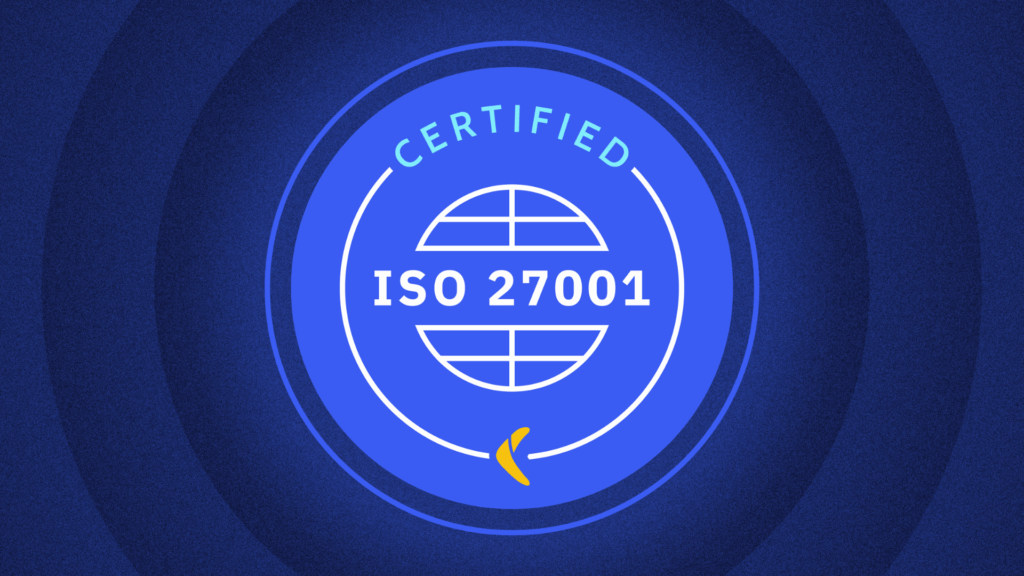The European Union will begin enforcing the Digital Operational Resilience Act (DORA) in January 2025. Essentially, it’s a regulatory framework designed to enhance the financial sector’s resilience against digital disruptions.
DORA aims to ensure that all participants in the financial system can withstand, respond to, and recover from all types of Information and Communications Technology (ICT)-related disruptions and threats. In this article, we’ll explore DORA’s impact on IT and DevOps teams, as well as enterprise companies, and provide a comprehensive guide to help you prepare for the upcoming changes.
What is the Digital Operational Resilience Act?
DORA is a comprehensive regulatory framework introduced by the European Union, aimed at strengthening the digital operational resilience of financial entities. The primary objective of DORA is to ensure that financial institutions can withstand, respond to, and recover from all types of ICT-related disruptions and threats. It covers a broad spectrum of requirements across five key areas:
- ICT risk management: Establishing robust risk management frameworks to identify, manage, and mitigate ICT-related risks.
- ICT incident reporting: Implementing standardized processes for reporting ICT-related incidents to ensure timely and accurate communication.
- Digital operational resilience testing: Regular testing of ICT systems to assess their resilience and ability to recover from disruptions.
- ICT third-party risk management: Managing risks associated with third-party ICT service providers, ensuring they meet the necessary standards.
- Information sharing: Promoting the sharing of information on cyber threats and vulnerabilities among financial entities to improve collective security.
Why it’s essential to prepare now
1. Complexity and scope
DORA’s comprehensive nature means that preparation requires significant time and effort. The framework covers various aspects of ICT operations, necessitating thorough assessments and substantial changes in processes, policies, and technologies. Early preparation allows organizations to address these complexities systematically, reducing the risk of non-compliance and associated penalties.
2. Enhanced resilience
Companies can enhance their resilience against digital disruptions by starting preparations now. Implementing robust risk management and incident response frameworks will ensure compliance with DORA and improve the organization’s ability to withstand and recover from cyberattacks, system failures, and other ICT-related incidents.
3. Competitive advantage
Companies that proactively comply with DORA will be better positioned to gain the trust of customers, partners, and regulators. Demonstrating a commitment to digital operational resilience can provide a competitive advantage, attracting clients who prioritize security and reliability.
4. Avoiding penalties
Non-compliance with DORA can result in substantial penalties, including fines and other regulatory actions. Starting preparations early helps organizations avoid these penalties by ensuring they meet all regulatory requirements by the January 2025 deadline.
5. Third-party dependencies
Many financial institutions rely on third-party ICT service providers. Ensuring these providers also comply with DORA is crucial, requiring time for due diligence, contract renegotiations, and implementation of necessary changes. Early preparation allows companies to manage these dependencies effectively.
6. Resource allocation
Preparing for DORA will require significant resources, including personnel, technology, and financial investments. By starting early, companies can allocate resources more efficiently, avoiding the rush and potential resource shortages closer to the deadline.
7. Continuous improvement
DORA emphasizes continuous improvement in digital operational resilience. Starting preparations now allows organizations to establish ongoing processes for testing, monitoring, and updating their ICT systems and practices. This not only ensures compliance, but also fosters a culture of continuous improvement and adaptability.
Impact on IT/DevOps teams
Increased focus on resilience: IT and DevOps teams will need to enhance their focus on building and maintaining resilient systems. This includes implementing robust disaster recovery (DR) and business continuity (BC) plans, ensuring systems can quickly recover from disruptions.
Enhanced incident management: Teams will need to develop and refine incident management processes to comply with new reporting requirements. This includes implementing automated monitoring and reporting tools to detect and report incidents promptly.
Regular testing: Continuous testing of systems to ensure operational resilience will become mandatory. This means integrating resilience testing into regular development and deployment cycles, requiring additional resources and planning.
Impact on enterprise companies
Data handling and storage: Enterprises will need to reassess how they handle and store data to comply with DORA’s stringent requirements. This includes ensuring data integrity, availability, and confidentiality at all times.
Third-party risk management: Companies will need to evaluate their relationships with third-party ICT providers, ensuring these vendors also comply with DORA requirements. This could lead to renegotiations of contracts and increased scrutiny of vendor practices.
Governance and compliance: Enhanced governance frameworks will be necessary to ensure compliance. This includes appointing dedicated roles for overseeing DORA implementation and regular audits to ensure ongoing compliance.
General DORA considerations
1. Continuity planning
- Business Continuity Plan (BCP): Develop a comprehensive BCP that outlines procedures for maintaining operations during a disruption. This should include communication plans, resource allocation, and recovery strategies.
- Disaster Recovery Plan (DRP): Create a DRP that details the steps to recover critical systems and data. This should include regular backups, off-site storage solutions, and clear recovery time objectives (RTOs).
2. Recovery Point Objective (RPO) requirements
- Data backup strategy: Implement a robust data backup strategy that aligns with your RPO. This includes frequent backups, secure storage, and regular testing of backup integrity.
- Data replication: Consider data replication solutions that ensure near real-time copies of data are available, reducing the risk of data loss.
3. Migrations and mergers
- Due diligence: Conduct thorough due diligence during mergers and acquisitions to ensure the acquired entities comply with DORA. This includes assessing their ICT infrastructure, data handling practices, and third-party relationships.
- Integration planning: Develop detailed integration plans that prioritize compliance with DORA. This includes aligning systems, processes, and policies with the new regulatory requirements.
Steps to start preparing for DORA now
1. Conduct a gap analysis: Assess your current ICT infrastructure, processes, and policies against DORA requirements to identify gaps and areas for improvement.
2. Develop a compliance roadmap: Create a detailed roadmap outlining the steps needed to achieve compliance. This should include timelines, resource allocation, and key milestones.
3. Invest in training: Ensure your teams are well-versed in DORA requirements and best practices. This includes regular training sessions, workshops, and access to relevant resources.
4. Strengthen vendor management: Evaluate and strengthen your relationships with third-party vendors to ensure they comply with DORA. This includes updating contracts, conducting regular audits, and maintaining open lines of communication.
5. Implement robust monitoring and reporting tools: Invest in advanced monitoring and reporting tools that can detect and report incidents in real-time. This will help ensure compliance with incident reporting requirements.
6. Regularly test and update plans: Regularly test your BCP, DRP, and other resilience plans to ensure they remain effective. Update these plans as needed based on test results and changes in your ICT environment.
What’s next?
The Digital Operational Resilience Act represents a significant shift in how financial entities in the EU will manage digital operational resilience. By understanding its requirements and taking proactive steps to prepare, IT and DevOps teams, as well as enterprise companies, can ensure they remain compliant and resilient in the face of digital disruptions. Starting preparations now will not only ensure compliance, but also enhance overall operational stability and security.
Rewind for data resilience
It’s not too late to start your DORA preparations—especially when it comes to your SaaS data backup strategy.
Decrease your recovery time and save yourself from manual rebuilding with Rewind’s automatic, set-it-and-forget-it data backup and restoration solutions. Our backup and recovery apps integrate directly with your SaaS platforms, allowing you to back up and restore individual items of data or your entire file set with ease. Learn more about protecting your business-critical data with Rewind.



